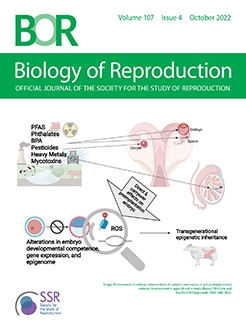One mechanism by which the maternal environment regulates the early embryo is by secretion of cell-signaling molecules. One of these is dickkopf WNT signaling pathway inhibitor 1. Objectives were to (A) resolve discrepancies in the literature regarding effects of dickkopf WNT signaling pathway inhibitor 1 in the bovine embryo on development of trophectoderm and competence to establish pregnancy after embryo transfer and (B) determine whether there are long-term consequences of dickkopf WNT signaling pathway inhibitor 1 on placental function and postnatal phenotype. Embryos produced in vitro were cultured with vehicle or 100 ng/mL recombinant human dickkopf WNT signaling pathway inhibitor 1 from Days 5 to 7.5 of development (i.e., the morula and blastocyst stages of development). dickkopf WNT signaling pathway inhibitor 1 increased the number of cells positive for the trophectoderm marker CDX2 at Day 7.5 of development while having no effect on number of cells positive for the inner cell mass marker SOX2. There was no effect of dickkopf WNT signaling pathway inhibitor 1 on pregnancy or calving rate after transfer of blastocysts produced with Y-sorted semen to either lactating dairy cows or suckling beef cows. Treatment with dickkopf WNT signaling pathway inhibitor 1 at the morula-to-blastocyst stages programmed placental function, as measured by an effect of dickkopf WNT signaling pathway inhibitor 1 on plasma concentrations of pregnancy associated glycoproteins and placental lactogen at Day 160 of gestation (although not on other days examined). dickkopf WNT signaling pathway inhibitor 1 treatment also resulted in calves that were heavier at birth as compared to calves derived from control embryos. After birth, dickkopf WNT signaling pathway inhibitor 1 calves grew slower than controls. Results confirm that dickkopf WNT signaling pathway inhibitor 1 alters the developmental program of the bovine embryo to affect both prenatal and postnatal phenotypes.
Summary Sentence
DKK1 can act to alter the early developmental program of the bovine embryo to affect prenatal and postnatal phenotypes.
Graphical Abstract






